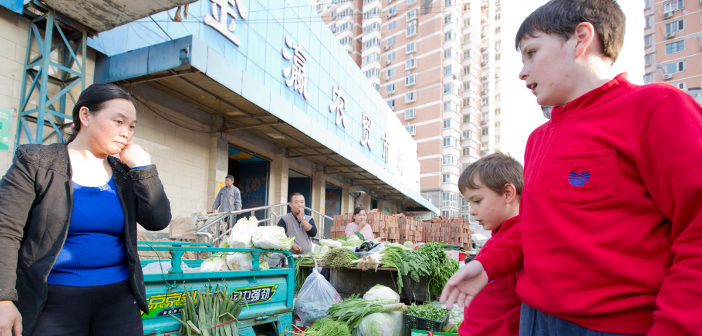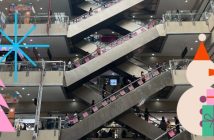I always told myself I’d never be one of those parents who uses their kids to interpret for them. Now, after 15 months in Beijing, I’m one of those parents who uses their kids to interpret for them.
Noah (10) and Joseph (7) attend Yew Chung International School (YCIS) of Beijing, and their Chinese proficiency has accelerated so fast that it’s left their mother and I choking on their dust. One reason for this, I’m convinced, is YCIS Beijing’s co-teaching model, in which classes are taught simultaneously in both English and Chinese. They’re learning the language not only formally in lessons, but also from hearing it spoken all day long. As a result it comes naturally to them, and they’re able to understand and respond easily in real life situations.
To put this to the test, I took them down to the market to buy some vegetables.
“Get some potatoes,” I tell the boys, “and I’ll make chips.” (That’s French fries to you non-Brits.)
Their enthusiasm for the task immediately increases.
“土豆 多少钱?” (tǔdòu duōshao qián) they ask – how much are potatoes?
“土豆三 块一 斤,” (tǔdòu sān kuài yī jīn) the stallholder answers – potatoes are RMB 3 for half a kilogram.
(The jīn is a traditional Chinese weight, sometimes in English called a “catty”, which is where we get the word “[tea]caddy” from. It’s been metrically rounded to 500 grams, or 600 grams in Taiwan, and remains the usual measure for food in both markets and supermarkets.)
The boys pick out some spuds and hand them over to be weighed.
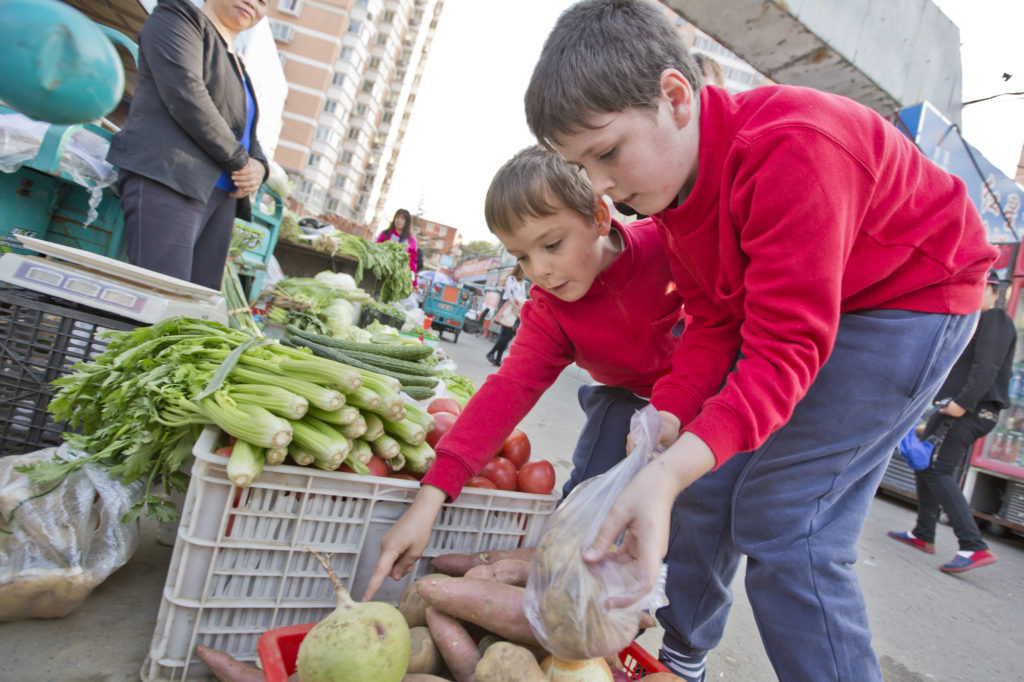
“If we were in the south of China I’d have asked for 马铃薯 (mǎlíngshǔ),” Noah tells me. “土豆 there means peanuts.”
We buy lettuce (生菜, shēng cài) and tomatoes (西红柿, xī hóng shì). “That means ‘western red persimmon’,” Noah says, and I am amazed. When I was his age I didn’t even know what a persimmon was.
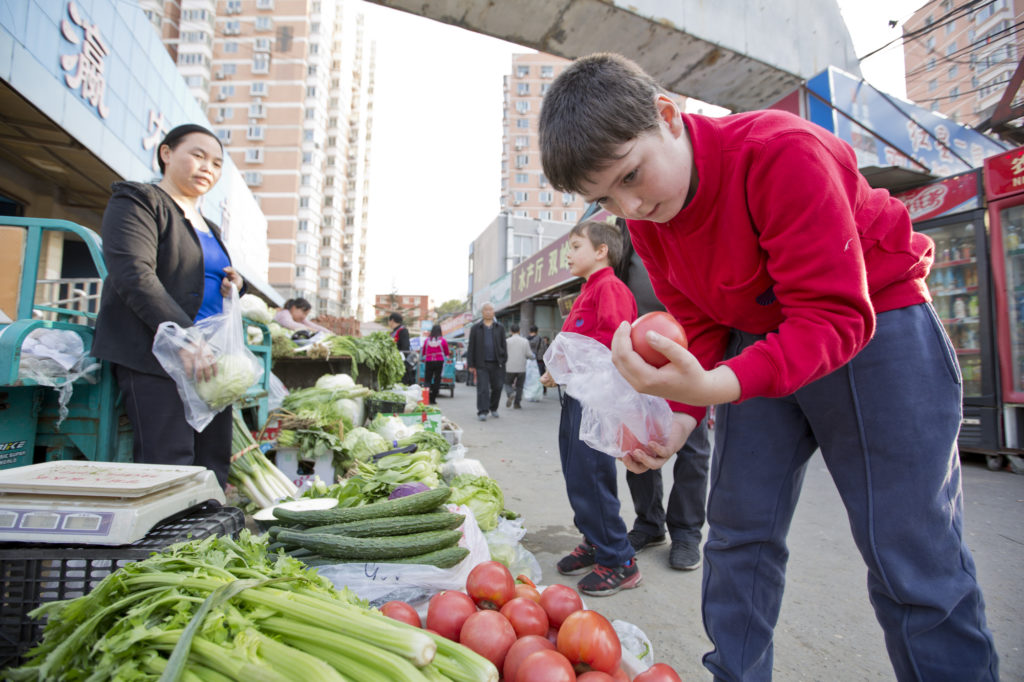
“二十四块”(èrshísì kuài) is the final bill. I hand the money to Joseph, who counts out RMB 24.
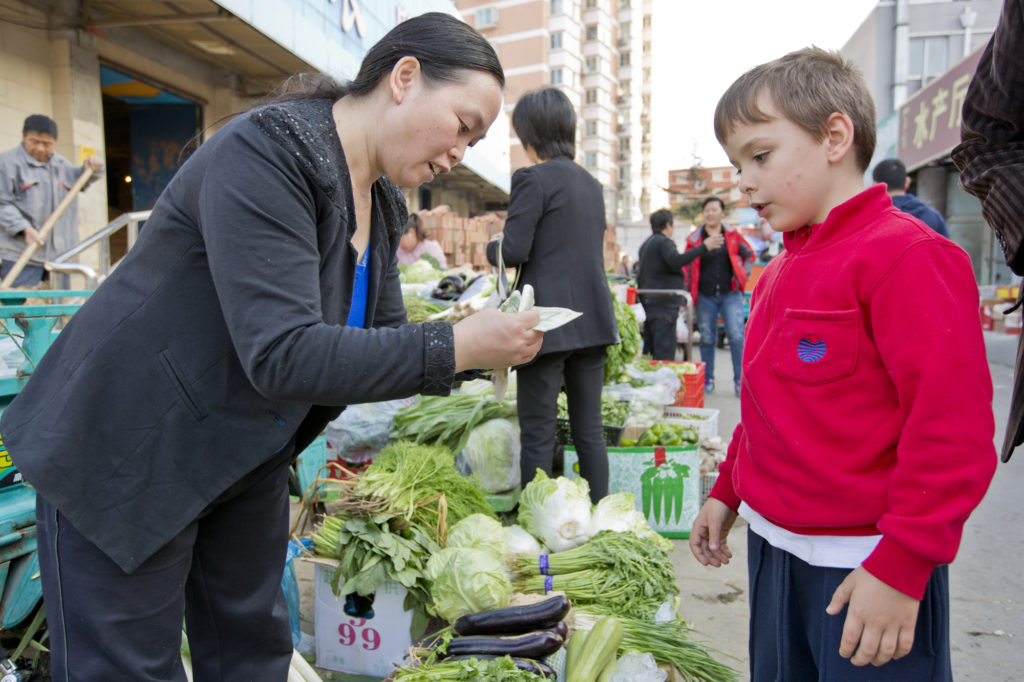
“你的中文说得很好,” (nǐde zhōngwén shuōde hĕn hǎo), the stallholder says to the boys, and even I understand that, because I’ve heard it said to them so often: “You speak Chinese very well.”
Joseph says “谢谢.”
Then she turns to the man who has been watching the 老外 children shopping.
“这些男孩真的漂亮,” (zhèxiē nánhái zhēnde piàoliang), she says.
“What does that mean?” I ask Noah, and he blushes.
“She said these boys are really handsome.”
Of course. They take after their father. Ahem.
But it’s YCIS Beijing we have to thank for their 中文说得很好.
This post is sponsored by YCIS Beijing
Photos: Uni

